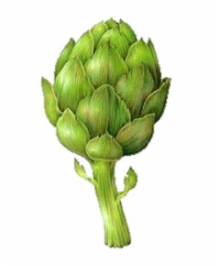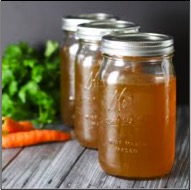 This is a beautiful recipe (adapted from the ocado website) which I love for three reasons. 1. It is super quick, easy and tasty. 2. From a nutritional point of view, its a winner. 3. People don't eat enough artichokes, which are, in my opinion a 'super' food. Artichoke is a great source of vitamin K, vitamin C and folate as well as the minerals calcium, magnesium and potassium. Plus full of fibre. Which we love. It's also full of antioxidants, in fact a study by the American Society for Clinical Nutrition (http://ajcn.nutrition.org/content/84/1/95.abstract), concluded it has a higher antioxidant status than blueberries and dark chocolate! Artichoke also contains constituents which have liver protective qualities. Which lets be honest, at this time of year, when our bodies, immune system and livers get a battering, can only be a good thing! It can increase the production of bile (okay sounds gross but totally necessary) which helps speed up the transit of food through your digestive system, reducing bloating. In fact they were used as a digestive aid in Egyptian times - and of course now we know exactly why. Its also a prebiotic, which feeds the probiotics (or 'good' bacteria) that resides in your stomach. Artichoke is also reported to be beneficial for those with:
Whilst these more serious issues may warrant taking artichoke leaf extract (under the guidance of a doctor or qualified nutritional therapist), eating more artichokes is almost certainly going to be beneficial to health. The heart of the artichoke is eaten because it is softer and the most edible part of the plant. Whilst it would be recommended to buy and prepare your own artichokes, this is, well...hard work to be honest! Buying a jar of artichoke hearts is very acceptable. Make sure it is preserved in olive oil with no / little added salt. So hopefully I have persuaded you about why the artichoke is so great. Here is a wonderful way to serve it at a dinner party, or just smother it on toast or crackers for an incredible health boosting taste sensational snack. This recipe also contains raw garlic (with potential cholesterol lowering, antibacterial, anti-fungal, blood pressure activity) virgin olive oil (with antioxidant, vasodilating, and antiplatelet properties, and potentially cholesterol lowering) and fresh basil (antibacterial, anti-inflammatory and cardiovascular health benefits). So really this is a superfood dip! Serves 2-4. Takes 5 minutes maximum. Ingredients
Instructions In a food processor, blend together all the ingredients. Whizz until smooth. Add a squeeze of lemon juice and top with a little zest before serving with crudités or wholewheat breadsticks. ENJOY!
0 Comments
 What is bone broth? At this time of year, its a great practice to start making bone broths with leftover bones / carcasses. Bone broth is made by simmering animal bones alongside vegetables, herbs and spices. Delicious, nutrient dense bone broth is very easy and inexpensive to make. Many cultures have used bone broth for centuries as both an inexpensive food source and a traditional medicine. It has long been valued as a tonic for the common cold, joint conditions and digestive disorders. Why is bone broth so good? The bones used to make broth house a variety of powerful nutrients that are released when they are slowly simmered in water. Bone broth is a rich source of minerals, trace minerals, gelatin and amino acids in a form our bodies can easily absorb and use. These nutrients supply the body with the raw materials needed to build strong and healthy cells throughout the body. Bone broth contains calcium, magnesium and phosphorus which support bone and tooth health. The collagen content of bone broth supports the health of joints, hair, skin and nails. Collagen from the bones is broken down during the cooking process into another protein called gelatin. The gelatin in bone broth works to support and repair the lining of the gut. Certain compounds (chondroitin sulfate and glucosamine) extracted into the broth from cartilage tissue help to reduce joint pain and inflammation, whilst stimulating the growth of new collagen. The amino acids found in bone broths support detoxification and collagen production (important in wound healing). They also suppress inflammation, an important consideration for those with chronic inflammation or auto-immune conditions. Health benefits
What bones can be used? Bone broth can be made from the bones of beef, pork, lamb, poultry, wild game and/or fish. When selecting bones to make broth from, it is preferable to use organic, grass-fed animals or wild-caught fish. Bones from conventionally raised animals may contain many harmful substances that can leach into the broth. Ingredients: 2-3kg beef/lamb bones, poultry carcasses Large splash of apple cider vinegar or fresh lemon juice (helps with extraction of minerals from the bones) 2 handfuls of onions, celery, leeks 1 tbsp black peppercorns 2-3 dried bay leaves Recipe: Put all the ingredients in a large stainless steel / ceramic cooking pot and cover with cold water. The water should cover the bones by approx.. 5cm with some room at the top of the pan. Bring to the boil with a lid on, then simmer for the required time, whilst skimming off foam from the top. Strain the liquid (use a fine mesh strainer for poultry) and use immediately or leave to cool. Bone broth can keep for several days in the fridge if left undisturbed. Notes: You can use a slow cooker on high for 12+ hours or a pressure cooker for 3+ hours. If freezing it is best to use glass containers and leave room for expansion. Chicken / turkey should cook for 6-12 hours Beef / lamb can cook for 24 hours until bones look bleached. If using fish 8 hours is the best cooking time. The longer the bones simmer, the more nutrients released. Sources used: Hemsley, J; Hemsley M. The Art of Eating Well (2010); http://articles.mercola.com/sites/articles/archive/2013/12/16/bone-broth-benefits.aspx; http://www.westonaprice.org/health-topics/broth-is-beautiful/ |
AuthorLouise Cullen Archives
October 2020
Categories
All
|
 RSS Feed
RSS Feed
